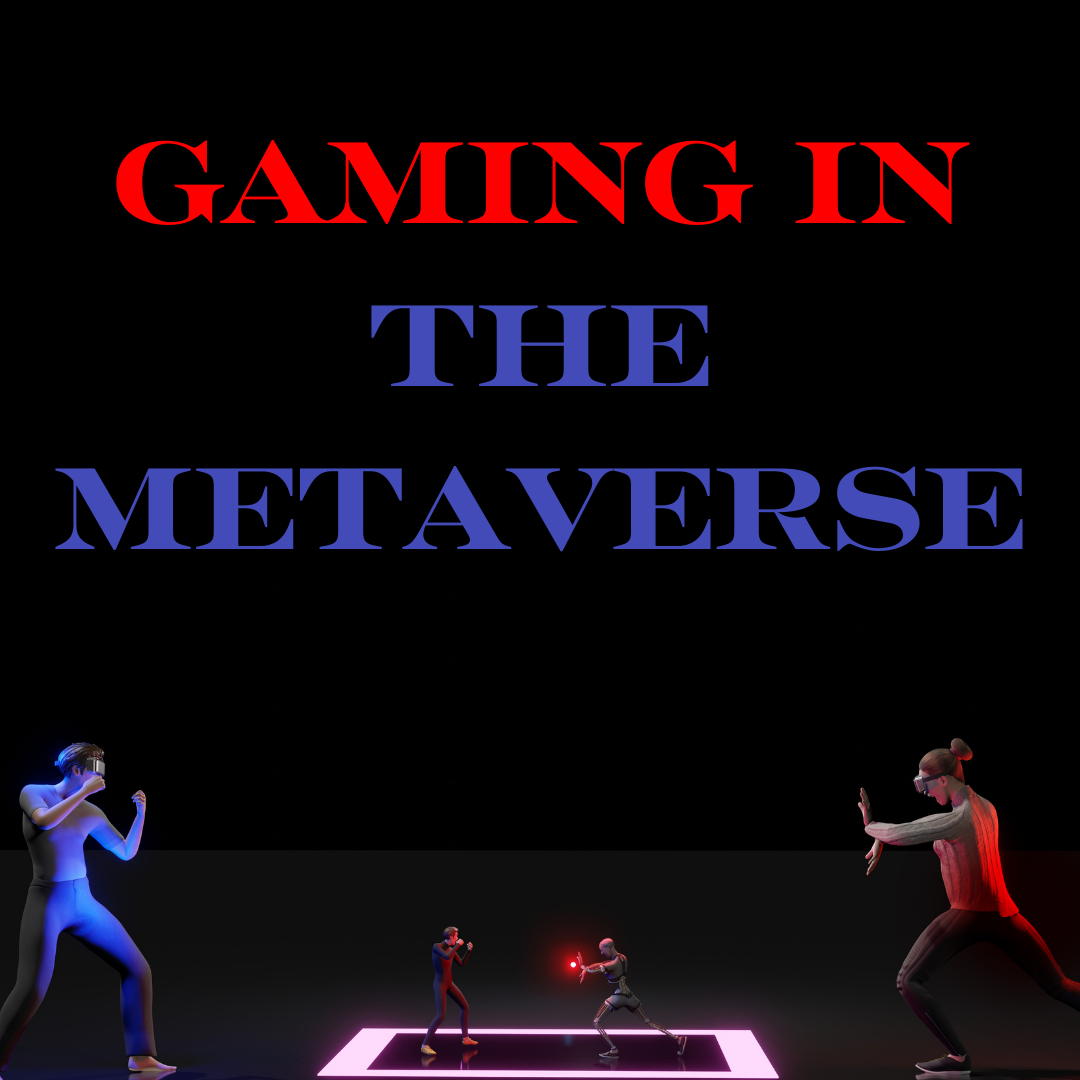Introduction
The gaming industry is in the midst of a profound transformation, driven by the emergence of the metaverse—a virtual, interconnected universe where people can interact, socialize, and play games on an unprecedented scale. In this comprehensive exploration, we will delve into the impact of the metaverse on the gaming industry. Specifically, we will analyze how it has reshaped virtual economies, introduced Non-Fungible Tokens (NFTs) into the gaming ecosystem, and given rise to innovative play-to-earn models.
The Rise of the Metaverse
Before diving into the specifics, it’s crucial to understand the concept of the metaverse and its significance in the context of gaming.
The metaverse represents a convergence of virtual reality, augmented reality, and the internet, creating a vast, interconnected digital space where users can immerse themselves in various experiences. Within this metaverse, gaming occupies a central role. It offers not only entertainment but also social interaction, economic opportunities, and a sense of belonging in a virtual world.
Virtual Economies in the Metaverse
Virtual economies have been a hallmark of online gaming for years. In the metaverse, they have evolved into complex and dynamic systems that drive player engagement, creativity, and even real-world economic implications.
- In-Game Currencies: Virtual worlds within the metaverse often have their own in-game currencies. These digital currencies can be earned, spent, and traded within the virtual ecosystem, creating a closed-loop economic system.
- Digital Goods and Assets: Players can purchase, trade, or create digital goods and assets such as skins, weapons, and virtual real estate. These assets have real-world value, and their trade has given rise to a thriving secondary market.
- Player-Driven Economies: In many metaverse games, players have a substantial influence on the in-game economy. Decisions made by players, such as supply and demand for virtual items, can impact the overall economic landscape.
- Job Opportunities: The metaverse has created job opportunities within virtual economies. Some players earn a living by participating in the metaverse’s economic activities, such as trading, crafting, or managing virtual businesses.
Non-Fungible Tokens (NFTs) in Gaming
The introduction of Non-Fungible Tokens (NFTs) has been a game-changer in the metaverse, providing unique ownership and provenance to digital assets.
- Ownership and Scarcity: NFTs are digital tokens representing ownership of unique, verifiable digital assets. In gaming, this translates to owning unique in-game items, characters, or skins.
- Interoperability: NFTs can be used across multiple games and virtual worlds, allowing players to bring their digital assets from one game to another, enhancing their gaming experiences.
- Player Creativity: NFTs have enabled players to monetize their creativity by creating and selling custom in-game assets. This fosters innovation and diversity in the gaming ecosystem.
- Digital Collectibles: NFTs have given rise to a new category of digital collectibles, where players can buy, sell, and trade rare and limited-edition in-game items as valuable digital collectibles.
Play-to-Earn Models in the Metaverse
Play-to-earn is a revolutionary concept that has gained momentum in the metaverse, allowing players to earn real-world income through their in-game activities.
- Economic Incentives: Play-to-earn models incentivize players to invest time and effort into games, as their in-game achievements can be directly converted into tangible rewards, such as cryptocurrencies or NFTs.
- Empowering Players: These models empower players to take control of their virtual destinies and turn their gaming passion into a source of income, leveling the playing field for all participants.
- Blockchain Integration: Many play-to-earn games utilize blockchain technology to ensure transparent, secure, and provably fair reward systems, enhancing trust within the gaming community.
- Changing Game Dynamics: Play-to-earn models can alter the dynamics of traditional gaming. They introduce a new level of competitiveness and motivation, as players aim to maximize their earnings.
Impact on Game Development and Business Models
The metaverse’s influence on gaming extends to game development and business models. Developers are increasingly embracing these trends to create engaging experiences and sustainable revenue streams.
- Emergence of Metaverse-First Games: Some game developers are now designing their games with the metaverse in mind, focusing on creating interconnected virtual worlds that can be part of a larger metaverse ecosystem.
- NFT Integration: NFTs are becoming integral to game design, as developers incorporate them into gameplay mechanics, enabling players to truly own and trade their in-game assets.
- Community-Driven Development: The metaverse encourages collaborative development with player communities. Developers engage players in shaping the game’s evolution, fostering a sense of ownership.
- Subscription Models: Some games are exploring subscription-based models that offer exclusive in-game content and rewards, aligning with the concept of ownership and player engagement.
Challenges and Concerns
While the metaverse’s impact on the gaming industry is undeniably transformative, it also raises important challenges and concerns.
- Accessibility: As the metaverse expands, ensuring equitable access to opportunities and resources within virtual economies becomes crucial.
- Regulation and Security: The introduction of real-world economic value into gaming has prompted concerns about regulatory oversight and security risks, including scams and fraud.
- Environmental Concerns: Blockchain technologies used in the metaverse, such as Proof of Work (PoW), have raised environmental concerns due to their energy consumption.
- Content Moderation: Balancing player creativity and content moderation in a decentralized metaverse can be challenging, particularly in addressing inappropriate or harmful content.
Conclusion
The metaverse is redefining the gaming industry, offering players new economic opportunities, enhanced ownership of in-game assets through NFTs, and novel play-to-earn models. Game development and business models are evolving in response to the metaverse’s influence, and players are experiencing a new era of interconnected virtual experiences. However, challenges such as accessibility, regulation, security, and environmental concerns must be addressed as the metaverse continues to expand. In this ever-evolving landscape, the metaverse is not just a destination but a journey that promises to shape the future of gaming and digital entertainment in unprecedented ways.

